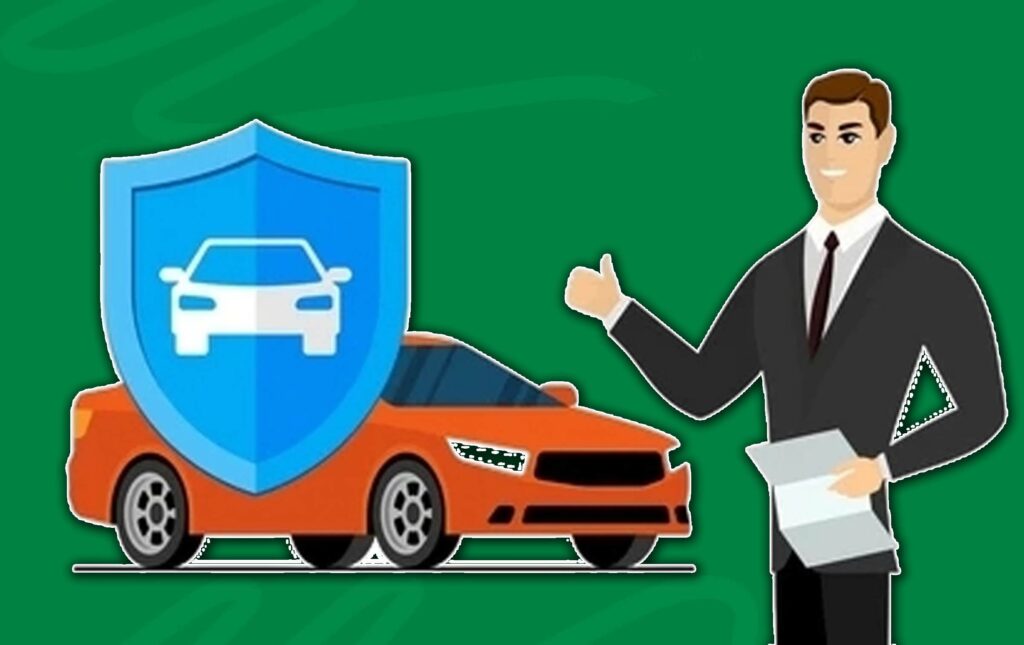How to Cash Out a Car Insurance Claim Check – Your car has been damaged in an accident or declared a total loss. After settling your auto insurance claim, you might be eligible for a payout—but how does it work? Who gets the check, and how do you cash it out?

The answers can vary depending on your situation, and several factors may affect the payout process. In this article, we’ll explain everything you need to know about cashing out a car insurance claim check after an accident.
How to Cash Out a Car Insurance Claim Check
Just so you know how you get paid for auto insurance claims may depend on if you make a claim with your own insurer or another driver.
When You make a Claim with your Insurer
When you file an auto insurance claim, the payout from the insurance company goes to the person or entity that owns the car. Here’s how it usually works:
- If your car is fully paid off, the insurer will send the check directly to you.
- If you have a car loan, the check may have to go to your lender. But in some cases the check could be made out to both you and the lender.
- If your car is leased, the insurance check will be made out to both you and the leasing company.
In situations where the check includes both your name and that of a lender. Or leasing company, they will need to endorse the check before you can cash or deposit it.
Typically, they will require that the car get repaired. They might ask you to sign the check over to them so they can pay the repair shop directly. Or they might request proof that the repairs are done before signing the check and letting you pay the bill.
When You Make a Claim with Another Driver’s Insurance Company
Things work differently when you file a claim with someone else’s insurance company. If another driver hits your car and you claim against their liability insurance, here’s what usually happens:
- The check will be in your name. Typically, the insurance company writes the claim check to you directly.
- Loan or lease requirements: If you have a loan or lease on your car, you will be required to make use of the insurance money for repairs. State rules can affect this process.
- No deductible: You won’t have to pay a deductible when claiming through someone else’s insurance.
However, always keep in mind that the other driver’s insurance might not fully agree that their driver is at fault. This could mean they only pay part of the claim.
What Happens When a Repair Shop is Involved
Depending on the insurer, the check might be sent directly to the repair shop. This is especially if it’s one of the insurer’s preferred shops. In some cases, the check may be made out jointly to you and the repair shop.
Although the insurer might recommend a repair shop to you, you have the chance to choose any repair shop of your choice. Keep in mind that the amount of money you wind up with if the vehicle gets repaired will depend on the estimated expenses to fix the car damage and the coverage limits listed in your policy, minus any deductible.
Can you Cash Out a Car Insurance Claim and Spend It?
If you fully own the vehicle, you have the freedom to use the insurance claim payment however you choose. This freedom also applies if the payment comes from someone else’s insurance.
However, if your vehicle is financed or leased, the lender or leasing company will have the power over how you spend the payment. And could require proof that the money was used for repairs.
If there’s any money left after the vehicle repairs, you don’t have to return it unless your policy specifically says so. Repair shops are expected to stick to the insurer’s estimate, and any leftover funds are typically insignificant.
What Happens with a Totaled Car Claim Check?
If your vehicle is declared a total loss and you have an outstanding loan. Or lease, the insurance company will likely issue a check made out to both you and the lender or leasing company. In this case, the lender or leasing company will claim their portion first, and any remaining funds will be released to you.
However, the insurance payout may not always cover the full amount you still owe. If the claim amount is less than your remaining loan or lease balance, you’ll be responsible for paying the difference. This is where gap insurance becomes helpful; it covers the shortfall between your car’s actual value and what you still owe.
If another driver’s insurance is covering the total loss of your vehicle. You and your lender or leasing company will need to agree on how the payout will be distributed.
Insurance companies decide whether to repair or total a vehicle based on several factors. This is including the type and extent of the damage, as well as the car’s age. If you file a claim under your own collision or comprehensive coverage, the maximum payout will be the car’s actual cash value before the accident, minus your deductible.



